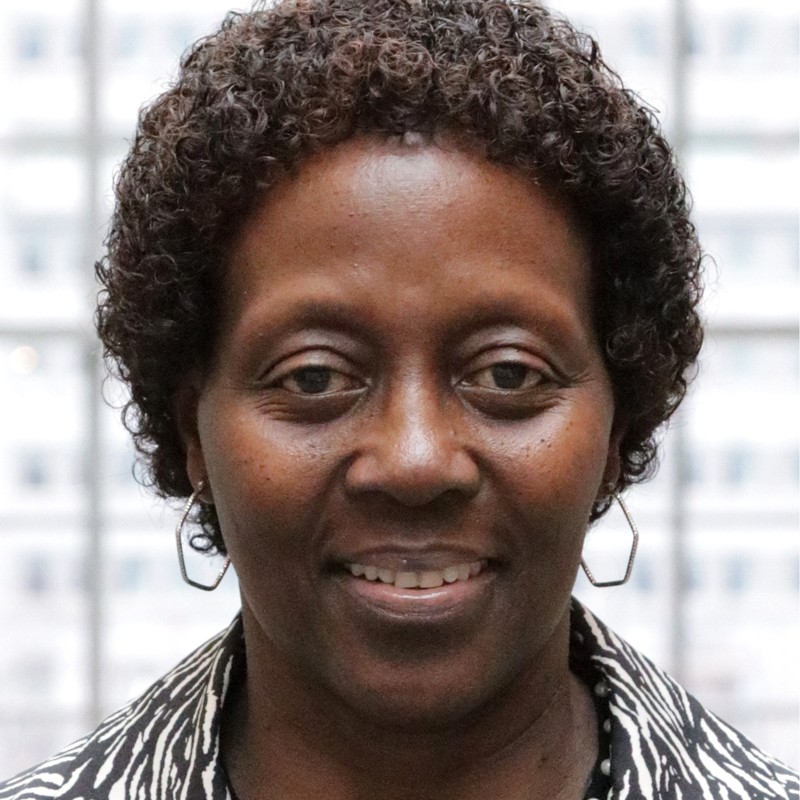Jobs/Appointments
Tanzanian Heads UN Convention on Biological Diversity

By Kester Kenn Klomegah
Elizabeth Maruma Mrema, a national of the United Republic of Tanzania in East Africa, has been appointed as the new Executive Secretary of the United Nations Convention on Biological Diversity.
She is a lawyer based in Montreal, Canada and she takes on her new role after more than a decade in leadership positions at the United Nations Environment Programme (UNDP) – and at a crucial time.
She has published several articles related to international environmental law, compliance and enforcement of conventions and developed, among others, a number of multilateral environmental agreements negotiation tools, handbooks and guidelines currently used by UNEP in its capacity-building programmes.
By her appointment, Elizabeth Mrema becomes the first woman from Africa to lead the intergovernmental body.
She will oversee the creation of a global biodiversity agreement for the next decade. It, therefore, means she has a mighty task ahead of her, leading countries as they negotiate new biodiversity targets.
The biological diversity was created by a UN treaty, signed into force by nations in 1992, and helps to set global targets to conserve biodiversity.
The previous global biodiversity targets, signed in 2010 and called the Aichi targets, are widely agreed to have failed to stop species loss.
Some scientists are now renewing calls for a single target to halt species extinction. But others worry that an extinction target would neglect other important goals of the agreements, such as ensuring that benefits from biological resources are shared.
“One could say that I have been appointed at a bad time for biodiversity, considering that the whole world is just emerging from, or still in, lockdown,” she says. “But at the same time, I see it as a major opportunity, as biodiversity is being discussed more than ever before.”
The new coronavirus, which originated in animals before it spread to people, has also brought renewed calls to stop the trading of wildlife, provoking long-simmering tensions between those who want to conserve species, and those pushing for their sustainable use.
There is greater awareness of the impact that human activities can have on nature, and of the connection between human health and biodiversity.
The interference, through deforestation, agricultural expansion, livestock intensification and habitat fragmentation, has exposed wild animals and brought them into closer contact with people, which has resulted in the spillover of pathogens and zoonotic diseases, human-to-human transmission through trade and tourism, and the explosive pandemic currently in the world, explains Elizabeth Mrema.
But the coronavirus pandemic has brought these issues to the fore and has emphasized discussions about how to prevent future pandemics.
Closing wet markets and banning wildlife trading totally would negatively affect communities who depend on wild animals. The consumers and buyers of wild animals are not poor people; they are the affluent communities in the cities. A total ban would also open the door to illegal trade in wildlife.
“Instead, we need more hygienic practices in wet markets that continue to operate, and regulated wildlife trade, within the framework of the Convention on International Trade in Endangered Species of Wild Fauna and Flora.
“We need to ensure the sustainable consumption of species for those communities who rely on this, while also curbing illegal trade.
“It is a delicate balance. Countries cannot deal with these problems on their own. We need international cooperation,” she added.
The current biodiversity targets have largely failed. The reasons for those failures are now well-known, and there is a need building on those lessons into the draft global biodiversity framework.
Unlike the previous goals, the major difference this time is that all stakeholders, including youth, business and indigenous groups have contributed to various iterations of the draft.
The parties are still the decision-makers who will finally adopt the framework, but they have realized that they need the engagement of other groups during the negotiations and in implementation.
It has to involve environmental ministries and departments, and this time, health, agriculture, fisheries, forestry, planning and finance ministries are getting involved.
Jobs/Appointments
Court Sanctions CHI Limited for Wrongful Employment Termination

By Modupe Gbadeyanka
The termination of the employment of one Mr Bodunrin Akinsuroju by CHI Limited has been declared as unlawful by the National Industrial Court of Nigeria.
Delivering judgment on the matter, Justice Sanda Yelwa of the Lagos Judicial Division of the court held that the sacking of Mr Akinsuroju did not comply strictly with the provisions of the contract of employment and the Employee Handbook.
Consequently, the company was directed to pay him the sum of N2 million as general damages for wrongful termination and N200,000 as costs of action, while Mr Akinsuroju was ordered to return the company’s properties in his possession or pay their assessed market value.
Justice Yelwa found that the contract agreement between both parties clearly required either party to give 30 days’ notice or payment in lieu of notice after confirmation of appointment, and there was no evidence that the employee was given the required notice or paid salary in lieu of notice.
The judge held that failure to comply with this fundamental term amounted to a breach of the contract of employment, thereby rendering the termination wrongful.
Mr Akinsuroju had claimed that the allegation of misconduct against him was unfounded and not established, maintaining that the disciplinary committee proceedings were prejudicial and that the termination of his employment was without justifiable cause and without compliance with the agreed terms of his employment.
In defence, CHI Limited contended that it had the right to terminate the employment of Mr Akinsuroju and that the termination was lawful and in accordance with the contract of employment and the Code of Conduct.
In opposition, counsel to Mr Akinsuroju submitted that the alleged breaches were not proved and that the termination letter took immediate effect without the requisite 30 days’ notice or payment in lieu of notice as stipulated in the letter of appointment and the Employee Handbook, urging the court to hold that the termination was wrongful and to grant the reliefs sought.
Jobs/Appointments
Tinubu Appoints Tunji Disu as Acting Inspector General of Police

By Modupe Gbadeyanka
President Bola Tinubu on Tuesday appointed Mr Tunji Disu as the acting Inspector General of Police (IGP), following the resignation of Mr Kayode Egbetokun.
Mr Disu, an Assistant Inspector General of Police (AIG), was recently moved to the Force Criminal Investigation Department (FCID) Annex, Alagbon, Lagos.
A statement today by the Special Adviser to the President on Information and Strategy, Mr Bayo Onanuga, disclosed that the President would convene a meeting of the Nigeria Police Council shortly to formally consider the appointment of Mr Disu as substantive IGP, after which his name will be transmitted to the Senate for confirmation.
Mr Tinubu expressed confidence that Mr Disu’s experience, operational depth, and demonstrated leadership capacity would provide steady and focused direction for the Nigeria Police Force during this critical period.
He reiterated his administration’s unwavering commitment to enhancing national security, strengthening institutional capacity, and ensuring that the Nigeria Police Force remains professional, accountable, and fully equipped to discharge its constitutional responsibilities.
Mr Egbetokun was said to have resigned from the position due to pressing family considerations.
President Tinubu, who accepted the resignation letter, expressed his profound appreciation for Mr Egbetokun’s decades of distinguished service to the Nigeria Police Force and the nation. He acknowledged his dedication, professionalism, and steadfast commitment to strengthening internal security architecture during his tenure.
Appointed in June 2023, Mr Egbetokun was serving a four-year term scheduled to conclude in June 2027, in line with the amended provisions of the Police Act.
The statement disclosed that his replacement was in view of the current security challenges confronting the nation, and acting in accordance with extant laws and legal guidance.
Jobs/Appointments
Tunji Disu to Become New IGP as Egbetokun Quits

By Adedapo Adesanya
Mr Tunji Disu, an Assistant Inspector General of Police (AIG), has reportedly replaced Mr Kayode Egbetokun as the new Inspector General of Police (IGP).
Mr Egbetokun resigned from the position on Tuesday after he was said to have held a meeting with President Bola Tinubu on Monday night at the Presidential Villa in Abuja.
President Tinubu appointed Mr Egebtokun as the 22nd IGP on June 19, 2023, with his appointment confirmed by the Nigeria Police Council on October 31, 2023.
Appointed as IGP at the age of 58, Mr Egbetokun was due for retirement on September 4, 2024, upon reaching the mandatory age of 60, but his tenure was extended by the President, creating controversies, which trailed him until his exit from the force today.
Although the police authorities are yet to comment on the matter or issue an official statement about his resignation, the move came amid reports suggesting that Mr Egbetokun has left the position.
Mr Egbetokun’s tenure was marred by a series of controversies; he recently initiated multiple charges against activist Mr Omoyele Sowore and his publication, SaharaReporters, after Mr Sowore publicly described him as an “illegal IGP.”
The dispute escalated into protracted legal battles, with the Federal High Court issuing injunctions restricting further publications relating to the former police chief and members of his family. Critics interpreted these court actions as attempts to stifle dissent and weaken press freedom.
His replacement, Mr Disu, was posted to oversee the Force Criminal Investigation Department (FCID) Annex, Alagbon, Lagos, some days ago.
-

 Feature/OPED6 years ago
Feature/OPED6 years agoDavos was Different this year
-
Travel/Tourism10 years ago
Lagos Seals Western Lodge Hotel In Ikorodu
-

 Showbiz3 years ago
Showbiz3 years agoEstranged Lover Releases Videos of Empress Njamah Bathing
-

 Banking8 years ago
Banking8 years agoSort Codes of GTBank Branches in Nigeria
-

 Economy3 years ago
Economy3 years agoSubsidy Removal: CNG at N130 Per Litre Cheaper Than Petrol—IPMAN
-

 Banking3 years ago
Banking3 years agoSort Codes of UBA Branches in Nigeria
-

 Banking3 years ago
Banking3 years agoFirst Bank Announces Planned Downtime
-

 Sports3 years ago
Sports3 years agoHighest Paid Nigerian Footballer – How Much Do Nigerian Footballers Earn












